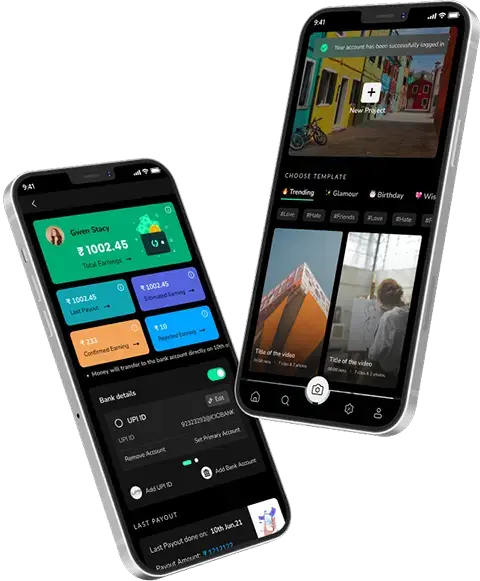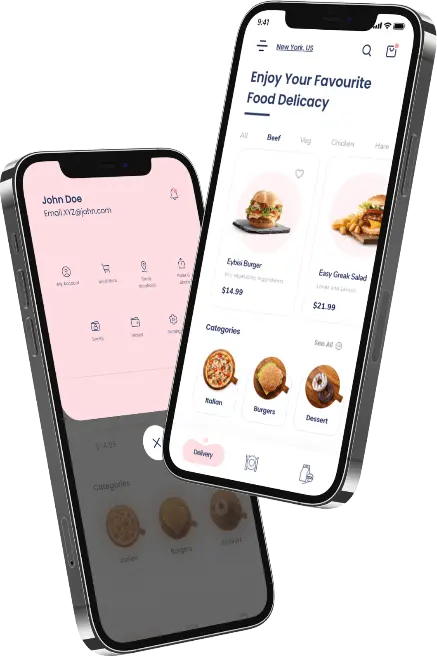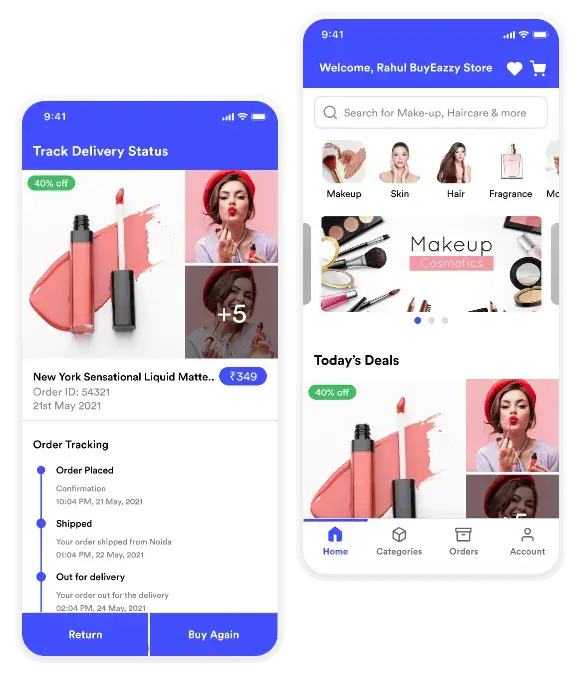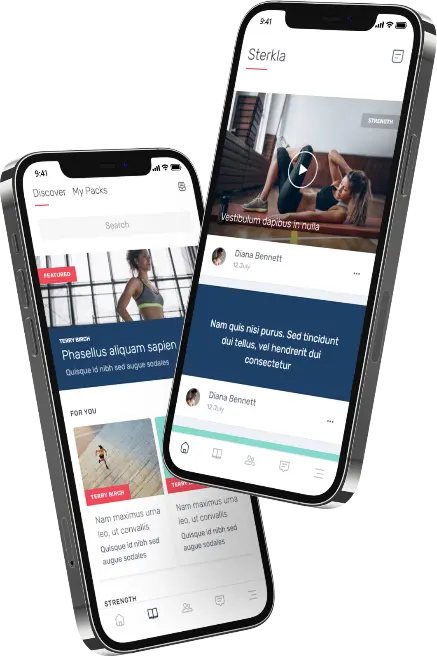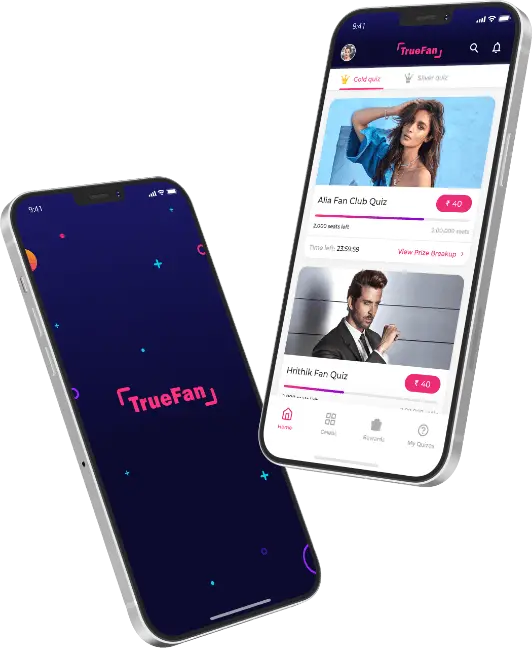Across Saudi Arabia, the UAE, Oman, and other Middle Eastern countries, Islamic mobile apps are changing how Muslims connect with their faith. From sending real-time prayer reminders to guiding zakat donations, these apps are making religious practices simpler, smarter, and more accessible. Muslims can access religious information, prayer times, Quran recitations, and much more, in just a few clicks.
So, today, we’ll explore how Islamic apps, including prayer time apps, Qibla tools, zakat calculator apps, etc, are leading this digital transformation. Let’s proceed…
What Are Islamic Apps?

Islamic apps are mobile tools built for Muslims. They support daily religious activities. Muslim community or individuals can track prayers, find the Qibla direction, read the Quran, calculate Zakat, and much more.
Islamic mobile applications are easy to use and built with the Muslim lifestyle in mind. And in the Middle East, their popularity is growing fast, especially during Ramadan and Hajj.
Some of the top examples include – Nusuk app in Saudi Arabia, Abu Dhabi prayer time app, and Zakat calculator mobile app in UAE. These apps are helping Muslims stay connected to their beliefs, no matter where they are.
Types of Islamic Apps Users Love
Here’s a quick look at the most popular islamic apps people love in the Middle East:
1. Prayer Time Apps: These apps show exact prayer times based on the user’s location. They also include Qibla direction, prayer reminders, real-time notifications, and customizable alarms.
2. Quran Apps: They offer the Quran in digital format. Features often include audio recitations, translations, tafsir, and bookmarks.
3. Dua Apps (Supplication): These apps collect duas for daily life, special moments, and personal needs. All duas are authentic.
4. Mosque Finder Apps: They help users find the nearest mosque using GPS.
5. Zakat and Charity Apps: They help users calculate their Zakat. Some also let users donate directly to trusted charities and track donations.
6. Halal Food Apps: These apps guide users to halal restaurants or stores. They may also verify halal certification.
7. Islamic Calendar Apps: They show important Islamic dates, including Hijri dates, Ramadan timings, Eid, and festival alerts.
8. Islamic Social Networking Apps: These platforms help Muslims connect. Users can share content, learn together, and join discussions.
9. Islamic Learning Apps: Users can access courses, videos, and quizzes on Islamic topics with these apps.
Some businesses are now planning to develop a Hajj mobile app with route tracking, rituals checklists, and safety alerts. This shows how deep the potential of Islamic apps really is. All of these apps help users across the region stick to their routines and grow spiritually.
The Rise of Islamic Apps in the Middle East
The Middle East is leading the global growth of Islamic apps. Why? Because users here deeply value their religious duties, and mobile apps help them stay on track.
- According to App Annie, downloads of religious and spiritual apps substantially increased in the MENA region between 2020 and 2023. Most of these were Islamic apps in the Middle East like prayer time apps and Qibla finders.
- Some studies have shown that a large number of Muslims in the UAE and Saudi Arabia use Muslim prayer time apps or Qibla compass mobile apps daily, especially during Ramadan.
- The Saudi Ministry of Hajj and Umrah reported that millions of users accessed the Nusuk app in Saudi Arabia during Hajj season 2024. That’s a massive shift toward digital pilgrimage planning.
- According to a UAE Digital Habits Survey in 2024, over 83% of Muslims in the UAE use mobile apps daily for prayer scheduling, a trend that is consistently observed across the region, including Saudi Arabia, and intensifies during Ramadan.
These numbers clearly show that Islamic mobile app development in the Middle East is booming and transforming how Muslims stay connected to their faith. If we talk about the Islamic app development in the Middle East, the business side is booming too.
- In the Middle East, 83% of UAE Muslims use prayer apps daily, a trend mirroring regional use and rising during Ramadan, contributing to the Spiritual Wellness App Market’s $49.4 million valuation in 2023 (expected to reach $109.3 million by 2030).
- Market observations indicate a clear user preference among Muslims in the Middle East for apps that are culturally localized and cater to their specific regional and religious practices.
- The UAE’s Ministry of Islamic Affairs even partnered with tech companies to launch prayer time APIs and Quran apps for developers.
According to this data, there are huge opportunities available for people looking to build a mobile app for Muslims. With strong government support for digital services, the region is setting new standards in Islamic app development. From local mosque communities to large-scale startups, the potential is massive and still growing. But do you know the major reason behind this rise in Islamic apps?
Why Are Islamic Apps So Popular?
Islamic apps are popular due to their essential features. People in countries like Saudi Arabia, UAE, Qatar, and Oman use these apps daily. These apps offer everything in one place, whether a prayer reminder or Quran learning. Here are some compelling features that make these Islamic mobile apps truly helpful. Let’s have a look at them:

1) Prayer Times and Qibla Direction
One of the top reasons people download Islamic mobile apps is to get accurate prayer times. If you forget missing prayers due to busy routines, a Muslim prayer time app uses GPS to show prayer timings based on your city. For example, the Abu Dhabi prayer time app shows correct local timings, with alerts for every prayer.
Another must-have is the Qibla finder app or Qibla compass mobile app. If you’re struggling to find the right Qibla direction when traveling, the app uses a compass feature to point you toward Mecca. Many apps also let you choose your preferred prayer time calculation method, like Umm al-Qura, used widely in Saudi Arabia.
Many users rely on a Qibla direction app when they’re at airports, offices, or on vacation. It’s peace of mind in your pocket.
2) Quran with Translations and Tafsir
A good mobile app for Muslims must include the Quran with audio and translation. You can read or listen to recitations in Arabic, with translations in English, Urdu, or French.
Some Islamic apps also offer Tafsir, helping users understand the meaning of each verse. Offline access, bookmarks, and tajweed features are now standard in leading Islamic mobile apps in the Middle East.
3) Hadith and Islamic Knowledge
Many users turn to Islamic apps for authentic Hadith collections. These apps offer Hadiths from sources like Bukhari and Muslim, with easy search options.
Daily Hadith notifications and explanations by scholars are often included. This makes it easy for users in the Middle East to learn more about their religion, especially the younger generation using religious app development tools daily.
4) Islamic Calendar and Events
A built-in Islamic calendar helps Muslims keep track of important days. Most Islamic apps in the Middle East show Hijri dates, Ramadan schedules, and Eid countdowns.
During Ramadan, these apps send Suhoor and Iftar reminders. For those planning Hajj or Umrah, some apps act like a digital guide, similar to the Nusuk app in Saudi Arabia.
Moon sighting alerts are another popular feature in Muslim prayer time apps across the Gulf.
5) Zakat Calculator and Charity Integration
Calculating Zakat can get confusing, especially with changing income, but a proper Zakat calculator app makes it easy. Based on your income, gold, and savings, the app shows how much Zakat you need to give.
In the UAE, Zakat calculator mobile apps also link to charity platforms. They help Muslims give the right amount, at the right time, with total clarity. You can pay Zakat and Sadaqah directly through secure gateways. These Islamic mobile apps also help track your donations, following Islamic banking principles.
6) Duas and Supplications
Every Muslim benefits from having a Dua library on their phone. Top Islamic apps include daily Duas and special occasion Duas, from waking up to traveling.
Some apps also have audio to help users learn Duas properly. Many Islamic mobile apps in the Middle East offer this feature, making it easy for families and children to learn and practice.
7) Education and Learning
Modern Islamic apps offer more than prayer tools. They help users learn. Many now include online courses on Islamic studies, along with quizzes and daily lessons.
Children also benefit from these apps. They can watch Islamic videos, learn stories of prophets, and play learning games. This makes the mobile app for Muslims not just spiritual, but educational too.
8) Halal Lifestyle and Community Engagement
A strong Islamic app development plan includes lifestyle tools. Many apps today feature halal restaurant locators across cities like Jeddah, Doha, and Muscat.
Some even offer matrimonial services, Islamic social forums, and event listings. Users can meet others, join discussions, and attend Islamic gatherings, all through the app.
This kind of religious app development helps users feel part of the wider Muslim community, both locally and globally.

Islamic App Development in the Middle East: A Wave of New Opportunities
Middle East is booming with opportunities. Governments are going digital. Religious organizations want smarter tools, and users expect better app design and features.
Even countries like Qatar and Oman are witnessing a rise in demand. In fact, experts predict that by 2025, mobile app usage in Oman will grow substantially, with religious apps playing a significant role.
This surge is driven by younger generations, digital literacy, and the demand for mobile-first religious content. Here’s how this opens doors for businesses and app creators:
Islamic apps can become everyday tools, just like social or fitness apps. There’s room to create apps for prayer tracking, Qibla direction, zakat calculation, and much more.

Smart Features Through AI
Artificial Intelligence is modernizing how Islamic mobile apps serve users. For example,
- Voice-powered Qibla finders that work on command.
- AI chatbots that answer questions about prayer, fasting, or zakat rules.
- Personalized Quran study suggestions based on user habits and interests.
AI not only makes apps smarter but also helps them create a more personalized and engaging experience. People looking for business ideas in 2025 can make a good income by creating their own AI-powered Islamic apps or AI chatbots.
Immersive Engagement with AR and VR
With Augmented Reality (AR) and Virtual Reality (VR), Islamic apps can go beyond utility. For example,
- They can offer virtual tours of Makkah, Madinah, and historic Islamic sites
- They can create AR Qibla tools that guide users in real-time, through their phone camera.
- They can enable interactive Islamic learning for children and teens.
This creates deeper connections with faith, especially for users who are unable to travel or attend physical gatherings. Businesses have the opportunity to earn a good income by creating a variety of AR/VR-based Islamic apps.
Blockchain for Transparent Zakat & Charity
Trust is key in charitable giving, and with blockchain technology, Islamic apps can:
- Ensure full transparency in Zakat and donation transactions.
- Let users track where their funds go, building accountability.
- Offer automated Zakat calculations based on income and region.
The result? Higher user trust, better engagement, and more recurring donors.
But it’s not just about ideas. These apps need skilled teams behind them. Because the community wants culturally relevant and fast-performing apps along with regional language support.
And this is what only experienced and top development teams can provide. This is where Techugo stands out.
Why Techugo is the Go-To Partner for Islamic App Development
Working since 2015, Techugo now operates in 5 countries – India, Saudi Arabia, UAE, Canada, and USA. Techugo has been a leading mobile app development company with a strong footprint across these 5 countries.
Experts at Techugo well understand Islamic culture, laws, Sharia compliance, and digital expectations. They ensure that features like prayer times, Qibla direction, Quran recitations, and Zakat calculators are accurate and user-friendly.
- 1400+ App developed with 800+ happy partners, including Fortune 500, Fortune 200, Global 2000 companies
- 28+ government projects, including BJP, the world’s largest political party of the current Indian Prime Minister, Mr. Narendra Modi
- Recognized as a top-rated mobile app development company in Saudi Arabia
- A trusted partner for Islamic app development in the UAE
- Raised over 869 million in revenue through developed applications
- Known for delivering fast, culturally relevant, and user-friendly apps tailored to Muslim needs.
Their team even guides you with clear estimates on software development costs in Saudi Arabia, Dubai, UAE, and more based on your region. And they will also help you choose between AI-based, basic, or scalable app models, depending on your needs.
Based on app features like AI-powered app or basic app with core features, they provide an estimated pricing structure.
How Much Does It Cost to Build an Islamic App?
Software development cost in Saudi Arabia or other Gulf countries depends on many factors, like:
- Features and app complexity
- Number of languages supported
- UI/UX design quality
- Platforms (iOS, Android, both)
- Developer location (local vs outsourced)
Here’s an estimate:
| Apps Model |
Estimated App Development Cost |
| Basic Islamic Apps (prayer time or Qibla only) |
$10,000–$20,000 |
| Advanced Islamic Apps (super app model) |
$30,000–$70,000 |
| Hajj-Specific or AI-Powered Islamic Apps |
Can go up to $100,000+ |
Choosing the right Islamic app development company helps you balance cost and quality. You can make good profits by developing any of these Islamic apps. Just connect with us.

How Businesses Can Make Money with Islamic App Development in 2025 and Beyond
Islamic apps aren’t just tools for prayer or learning. They can also be smart business models. More and more companies are investing in Islamic mobile app development in the Middle East to increase both value and profits. Here’s how you too can make money with your Islamic app in 2025 and beyond.
1. Donations and Crowdfunding
One of the easiest ways to make money is through donations. You can add a donation button inside the app. Many users in the Middle East are happy to support a good cause, especially during Ramadan or Zakat season.
You can also use crowdfunding platforms to raise money. If you’re launching an Islamic educational app, platforms like LaunchGood can help you reach global Muslim audiences. This method keeps the app free while still supporting your Islamic app development costs.
2. Affiliate Marketing for Halal Products
You can partner with halal brands, Islamic bookstores, or modest fashion stores. Then promote their products inside your app.
For example, your Qibla finder app or prayer time app could feature links to halal perfumes, prayer mats, or digital Qurans. Every sale made through your app earns you a commission. This works well in the Middle East, where users actively shop for Islamic items online.
3. Paid Islamic Courses and Consultations
Many Muslims want to learn more about their faith. Your Islamic mobile app can offer paid Islamic courses, online classes, or webinars.
You can charge one-time fees or create subscription plans for monthly learning. Some apps also offer private consultations with scholars or speakers. These features can be locked for premium members. This adds strong value while creating a new revenue stream in religious app development.
4. Exclusive Content for Members
You can also create exclusive content for paid users. It could be premium Duas, advanced Tafsir, or Hajj guides.
For example, a Hajj mobile app in Saudi Arabia could offer a VIP package with step-by-step video tutorials and personal support. These small upgrades make a big difference and users are willing to pay. This strategy works well for startups and mobile app developers in Saudi Arabia looking to scale.
FAQs
Q1. What are Islamic apps and how are they used in the Middle East?
Islamic apps are mobile applications that help Muslims practice their faith. In the Middle East, these apps are widely used for tracking prayer times, finding the Qibla direction, calculating Zakat, reading the Quran, and learning Islamic teachings.
Q2. Which features are most important in an Islamic mobile app?
Key features include accurate prayer time notifications, a Qibla compass, a Zakat calculator, Quran with audio and translations, Duas, and Islamic calendars. Some advanced Islamic apps in the Middle East also offer AR-based Qibla finders, AI chatbots, and Ramadan tools.
Q3. Are prayer time apps accurate in cities like Abu Dhabi or Riyadh?
Yes, most modern Muslim prayer time apps use GPS and local calculation methods like Umm al-Qura to provide accurate prayer times for cities in Saudi Arabia, UAE, Qatar, and Oman.
Q4. What is a Qibla finder app and how does it work?
A Qibla finder app or Qibla compass mobile app shows the direction of the Kaaba in Mecca from your current location. It uses your phone’s GPS and compass to give a real-time Qibla direction, which is essential for performing prayers correctly.
Q5. How does a Zakat calculator app work?
A Zakat calculator app helps Muslims calculate their annual Zakat based on assets, income, and savings. Some Zakat calculator mobile apps in the UAE also allow direct donations through secure gateways, making it easier to fulfill this religious duty.
Q6. Can I use Islamic apps during Ramadan and Hajj?
Yes, many Islamic apps include Ramadan app features like Suhoor/Iftar reminders, fasting trackers, and Quran reading goals. During Hajj, apps like the Nusuk app in Saudi Arabia help users with permits, maps, and crowd tracking.
Q7. Are Islamic apps popular in the Middle East?
Yes, Islamic apps in the Middle East are widely used. Downloads have grown rapidly in countries like Saudi Arabia and the UAE. Features like real-time prayer alerts, Qibla direction apps, and interactive learning tools are in high demand.
Q8. How much does it cost to develop an Islamic app in Saudi Arabia or UAE?
The software development cost in Saudi Arabia or UAE varies by features. A simple prayer time app may cost $10,000–$20,000, while a full-featured Hajj or Zakat app can go up to $60,000 or more, depending on complexity and design.
Q9. Can businesses earn revenue from Islamic mobile apps?
Yes, Islamic app developers can monetize through donations, paid Islamic courses, in-app purchases for halal products, and premium subscriptions. Many mobile app development companies in the UAE and Saudi Arabia build these features to support growth and impact.
Q10. How can I find a mobile app development company for Islamic apps?
Look for a mobile app development company in Saudi Arabia, UAE, or Qatar that has experience in Islamic app development. They should understand religious needs, local laws, and user expectations across the Middle East.
Summing Up…
Faith is now at your fingertips. Islamic apps are not just “nice to have.” In the Middle East, they’ve become essential. With the right features and technologies, these apps are revolutionizing religious practice. They offer simplicity, accuracy, and most importantly accessibility. Prayer, Qibla, Zakat, Ramadan planning, everything is now easier, faster, and smarter.
If you’re a startup, mosque, or business looking to create a meaningful impact, this is your moment.
Contact Techugo, a trusted mobile app development company in UAE, Saudi Arabia, Qatar, Dubai, and Oman, and discuss your ideas to create your own prayer time app, Qibla compass app, or Zakat calculator for your region or Muslim community.
Post Views: 710




 SA
SA
 KW
KW
 IE
IE AU
AU UAE
UAE UK
UK USA
USA
 CA
CA DE
DE
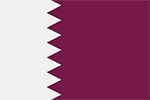 QA
QA ZA
ZA
 BH
BH NL
NL
 MU
MU FR
FR











